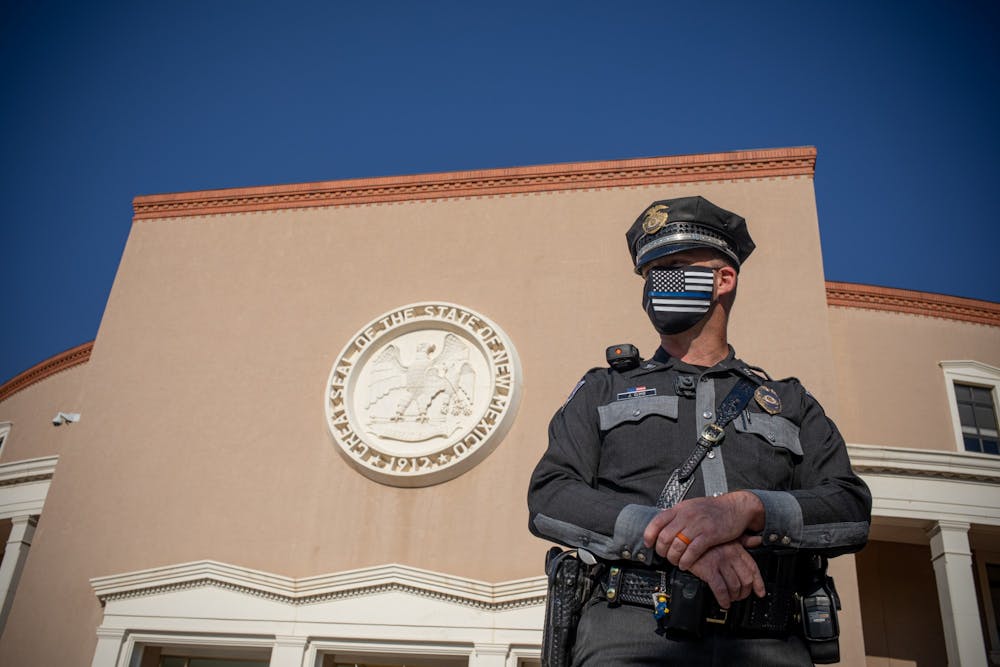After nearly a year of national uproar and calls for action sparked by the murder of George Floyd’s at the hands of a Minneapolis police officer, law enforcement reform is on New Mexico’s spring legislative agenda for the 60-day session.
“I anticipate at least six or eight bills dealing with police reform this session,” Rep. Antonio “Moe” Maestas, D-Albuquerque and co-chair of the criminal justice reform subcommittee, said.
Enraged by excessive police shootings and violence, hundreds of New Mexicans took to the streets last year calling attention to the reinvigorated Black Lives Matter movement and the need for change within police forces in the state, particularly the Albuquerque Police Department.
In 2020, New Mexico had the highest rate of police shootings in the country alongside Alaska and Oklahoma, according to the Washington Post.
The upcoming bills are expected to center around the need for law enforcement accountability and consequences for misconduct. Legislators have said that the bills will also address issues such as qualified immunity for police officers, police protection laws, excessive use of force, the preliminary hearing process and law enforcement academy procedures.
While the House and Senate retain approximately the same number of Democratic and Republican seats after the November general election, about a quarter of the 42-person Senate will be first-time legislators, alongside eight new House representatives.
When addressing the party split within the Senate on police reform, Sen. Sander Rue, R- Albuquerque, former co-chair of the criminal justice reform subcommittee and a Republican advocate for police reform, said that, “the problem with the conversation is that it starts from the points of extreme, and right away creates a divide.”
Rue predicted that the Senate will likely vote on party caucus positions more this session than they have in the past years. With a Democratic majority in both the House and Senate, many law enforcement bills are expected to pass if they do vote along party lines.
Rue also noted a growing urban-rural divide regarding law enforcement reform, saying that many rural politicians live in small communities where they have close relationships with their sheriff.
There have been tensions between rural and urban communities over gun bills in the past. In late February 2020, rural sheriffs refused to enforce the Extreme Risk Firearm Protection Act, which allows courts to order the temporary seizure of guns from at-risk individuals.
Maestas raised concerns about backlash from law enforcement officers themselves, pointing out the power and cohesiveness of police unions and the tremendous political clout officers and their collective bargaining groups have accumulated over the years.
Despite the divisions, Rep. Gail Chasey, D-Albuquerque and chair of the House Judiciary Committee, said she is optimistic that some of the legislation will be passed.
Get content from The Daily Lobo delivered to your inbox
“I really think we are all taking police reform seriously,” Chasey said.
Nikita Jaiswal is a freelance reporter at the Daily Lobo. She can be contacted at news@dailylobo.com or on Twitter @NikitaJswl






